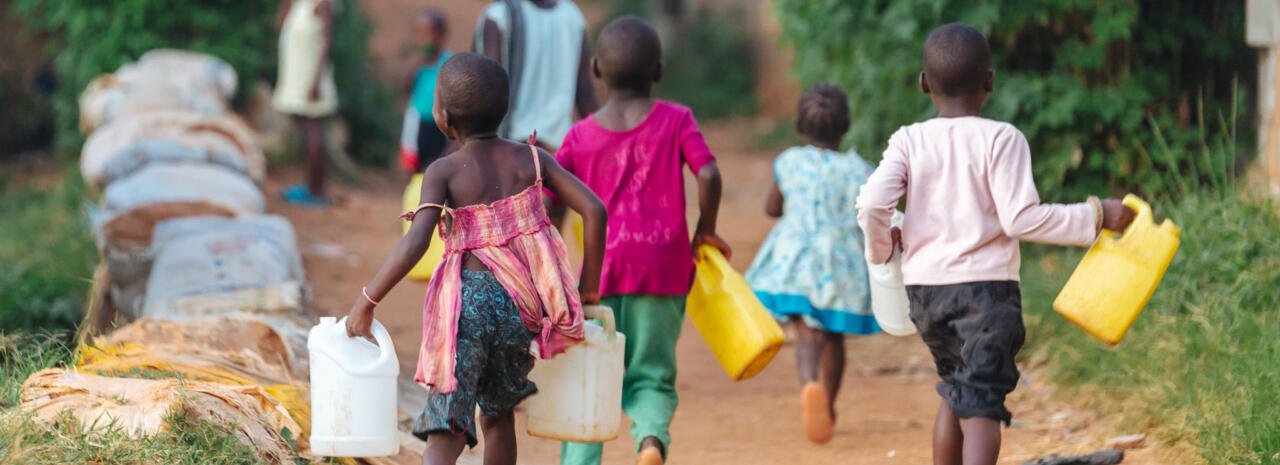
Navigating the financial landscape of ECCE in Uganda
Genesis Analytics, in collaboration with UNICEF, conducted a detailed analysis of the costs and challenges faced by Uganda’s Early Childhood Care and Education (ECCE) sub-sector.
The study analysed the costs and benefits of scaling up one year of quality, centre-based pre-primary education under different scenarios. By leveraging global evidence, the research aimed to guide ECCE financing that is adequate, equitable, effective and efficient.
The findings of the Genesis analysis revealed the immense potential benefits of expanding access to pre-primary education in Uganda. Scaling up to near-universal levels could significantly reduce primary school repetition rates, enhance children’s long-term educational outcomes, and free up time for parents and caregivers to engage in paid work.
The expansion would also stimulate job creation in the education and care sector, especially benefitting women who constitute the majority of care workers. The study found a clear case for investment: for every 1 UGX spent on providing pre-primary education, up to 16 UGX could be returned in socio-economic benefits reaped by children, their families and society more broadly.
Given Uganda’s current fiscal position, financing this scale-up will require multiple, coordinated strategies. Larger budget allocations to the education sector, combined with reprioritisation and efficiency savings within the Ministry of Education and Sport, could be used as strategies to plug funding gaps.
However, given the scale of enhancements required, it may be necessary to supplement public funding with strategic partnerships. A wide range of actors could be brought in, including government, the private sector, non-governmental organisations and development partners. We believe that the strong empirical evidence produced in this study will now be used by child-focused stakeholders to build these partnerships and improve resource mobilisation for this intervention.
Opportunities for early learning are a critical component of early childhood development. Quality ECCE services can influence a child’s life trajectory, having the potential to drive improvements in education, health, employment prospects and incomes, as well as reducing the propensity to experience poverty or engage in criminal activity.
Uganda is well placed to reap the benefits of investing in quality pre-primary education. The country has a young and rapidly growing population, with more than half of the population under the age of 15.[2 Ugandan families are starting to have fewer children on average. This means that while the number of children will continue to increase (because there are more families having children), the number of Ugandan working-age adults will increase even more.
This offers a potential “demographic dividend”. To ensure that this large future working-age population has the skills to contribute to society and the economy, it is important to invest early in their human capital, including through pre-primary education.
The government of Uganda has made human capital development a priority, but challenges remain in the ECCE sector. Data on coverage of ECCE is poor; however, it is estimated that fewer than one in five young children are enrolled in registered ECCE centres.
Further, this coverage is inequitable, with enrolment highest among wealthier, urban or peri-urban children. Service provision is largely left to the private sector and fees are levied on households, which has contributed to low coverage (especially in poorer, rural areas). The government and its partners recognise these bottlenecks and are developing policies to tackle them.